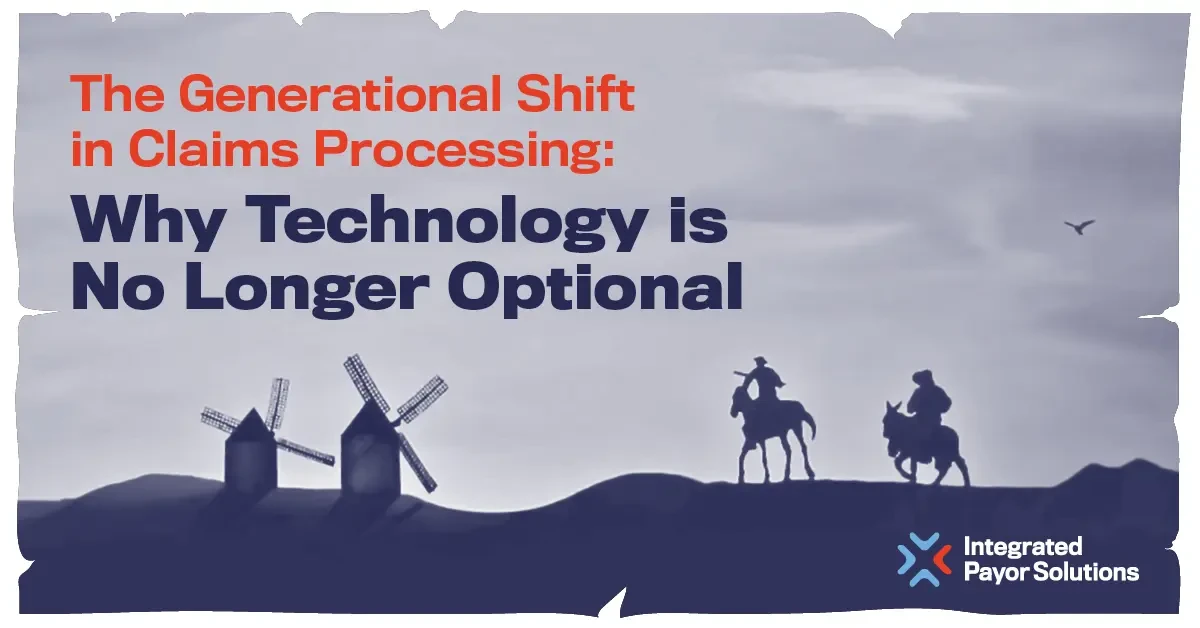You’ve probably seen countless commercials for AI by now if you’re not already making use of it yourself. Everywhere you look, advancements in technology seem to be growing faster and faster, without any sign of slowing down. The more we move forward, the harder it is to deny technology’s vital place in almost every industry. And while technology cannot replace the claims examiner, it can help them be more efficient spending their time on complex situations where only a human can decide. As the industry marches forward, providing that aid for employees through technology is becoming less and less optional.
Just take a look at the current industry. An aging workforce, coupled with the lack of young professionals entering the field, presents a number of significant challenges for the health benefits space. From affecting the efficiency of processes to the ability of organizations to adapt to changing client needs, these challenges can pose a hefty hurdle for companies to overcome.
Loss of Knowledge and Skill Gaps
As older employees retire, claims processing departments risk losing years of accumulated experience, knowledge, and specialized skills. This is felt keenly when it comes to complex claims and adjusting high-value or nuanced claims, where deep expertise is necessary. Factoring in the lack of younger professionals entering the field, there are fewer opportunities for mentorship and knowledge transfer. Younger employees may struggle to fill the knowledge gaps left by retiring workers, which can lead to a decline in the quality and efficiency of claims handling.
Impacted Customer Experience
Experienced claims adjusters bring valuable judgment and intuition, especially when dealing with complex or difficult claims. Losing this experience can lead to inconsistency in claims outcomes, which may affect customer satisfaction and lead to payment delays, errors, and compliance issues. Additionally, any slowdown in the claims process poses a significant threat to customer confusion and frustration—another potential consequence of the generational shift we will discuss later. Younger professionals, who are typically more comfortable with digital tools, can provide a more tech-savvy, efficient, and transparent experience for claimants, helping increase customer satisfaction in their claims experience. However, that isn’t much help if only a handful of young professionals enter the field.
Loss of Speed and Efficiency
Another particularly concerning consequence of the generational shift is slower claims processing. Speed is vital in claims processing, and delays can harm customer satisfaction. As the workforce evolves, organizations may find themselves facing a slowdown in processing speed. While experienced adjusters bring significant value, their ability to keep pace can vary. As workers grow older and retire, a lack of new workers can cause a decline in speed and efficiency, pushing a heavier workload on employees
The solution to all of this is straightforward—using technology to fill the gaps.
The Essential Shift Toward Technology
You cannot replace humans, especially when it comes to complex claims situations that require a human making decisions. However, given these challenges, embracing the aid of technology is not just a choice; it’s a necessity. Though there may be some initial resistance to adopting new technologies like automation, AI tools, and cloud-based platforms, the benefits far outweigh the hurdles. By integrating these tools into claims processing, Third Party Administrators (TPAs) can streamline operations, reduce processing times, and enhance customer experiences.
At IPS, we recognize the urgency of this transition. We are committed to investing in and creating technology that simplifies claims handling, allowing human expertise to shine where it matters most. Our Encompass+ platform is a full-stack technology solution designed to empower TPA and network businesses without requiring extensive IT resources. With features that prioritize flexibility, compliance, and affordability, we ensure that your claims administration is not just keeping up with the curve—it’s leading the way.
Technology should simplify processes and enhance effectiveness. By embracing this digital transformation, we can tackle the challenges of an evolving workforce and set a new standard in claims processing.

